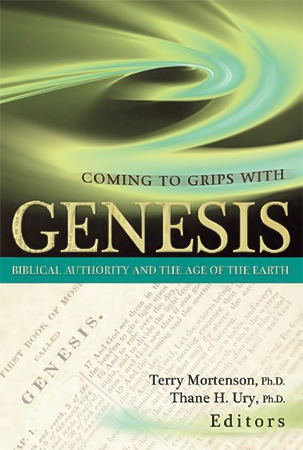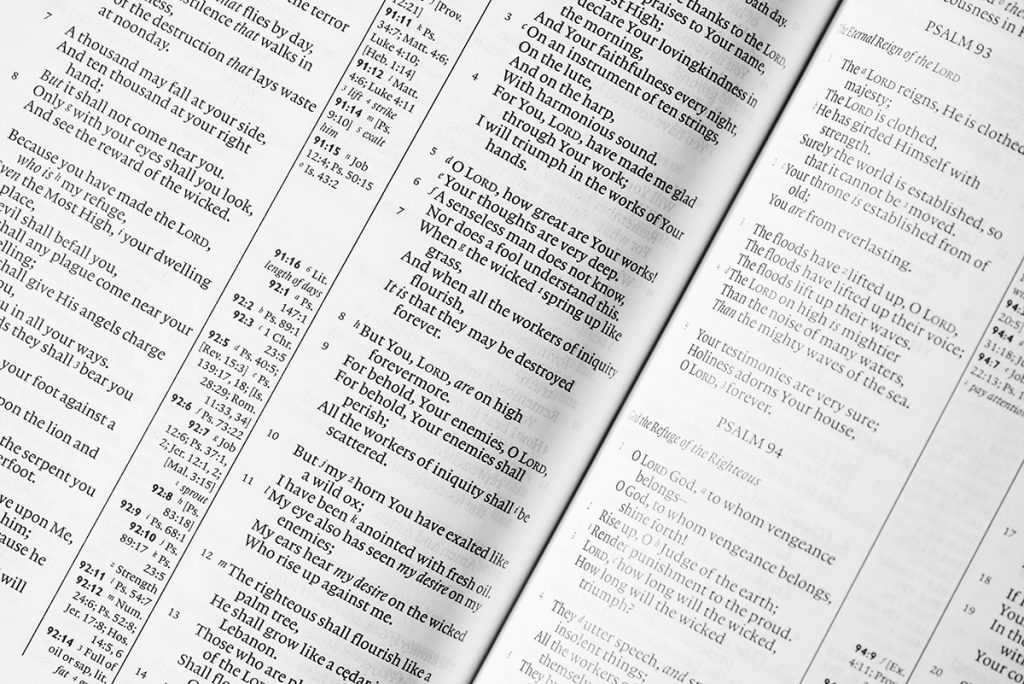Before reading hundreds of pages in this book, “Coming to Grips with Genesis: Biblical Authority and the Age of the Earth,” it became clear this is a compilation work of numerous authors. Work as either written for this book or by incorporation from earlier papers written. Authors each highly distinct as scholars within their view of Genesis. From linguistics to theological exploration of meaning within the first book of Moses, the entirety of the work appears to begin or operate from the worldview of Henry M. Morris. Morris was an American young-Earth creationist and engineer who co-founded the Creation Research Society and the Institute for Creation Research.
Some of the chapters were written after the passing of Morris in 2006, but all authors support a literal and historical interpretation of the book of Genesis. Along with Morris’s influence and recognition of the entire body of thought, John MacArthur also supports the material with small equivocations. Nonetheless, MacArthur makes clear his criticism of naturalism and presuppositions to bring attention to the validity of all Scriptural miracles, including Christ’s resurrection. To set into a further view that Morris, MacArthur, and the authors of this book are young-earth creationists with a literal and historical narrative interpretation of Genesis. To include the timeline of creation events, the formation and fall of humanity, Adam and Eve, a global flood, and a denial of theistic evolution (evolutionary creationism).
In this book, periodic attention is placed upon the mechanics and the grammatical use of ancient Hebrew to build a continuity of rationale about a literal Genesis interpretation. As compared to a poetic and figurative view advocated by numerous others today, and especially among liberal scholars. It is clear that the depth of research and citations offer evidence for the conclusions they draw about the various literal interpretations of authors among the many chapters.
The perspective of authors goes quite far to offer coherent support for the English rendering of terms, phrases, and clauses given in the biblical narrative of creation and early historical events spanning a relatively short period of time. Various authors also engage the objections to the traditional view of literal interpretation. With particular attention to various mythical Ancient Near East (ANE) comparisons to the biblical account of creation. With substantial effort and meticulous attention to detail, point-by-point comparisons from source material get stripped away and dismissed without viable credibility. Nonetheless, historical and modern ANE comparisons inform today’s Bible readers what postdiluvian authors of Scripture recognized from lore among social beliefs.
My time here in the book centers around various theories concerning creation timelines, methods of interpretation, and literal vs. figurative theological positions. So it serves as a technical reference handbook of sorts from the historical narrative record of Genesis. So during the course of my efforts of reading and study this far, I have poured into the topics of historical backgrounds, deep time, genre, geology time-scale, earth age interpretations, Noah’s flood (local vs global), genealogies, and various additional theories about what is presented throughout early Genesis.
I drank from the deep fountain of possibility to know clearly what I have not firmly understood. To take a position and settle upon anything to conclude what the intricate meta details were in Scripture. I have an intuition and sense about how historical events played out, but I am barely aware enough to recognize how erroneous my conclusions can become. I need help from the Spirit within to understand and discern among academic, scholarly, or opinionated advocates either way.
From careful reading to get the exact positions from the various arguments of a literal and historical young earth view, my time in this work was so far sort of introductory to figure things out. To understand what is coherent to believe from Truth as revealed by what God intended through direct revelation among original ancient manuscripts. To provide a backdrop of what both traditional and liberal academics and theologians surmise about what occurred at the beginning of humanity’s existence. I want to see the error and the right way to think and understand the specifics. So all chapters of this book together represent a composite whole of disparate work. As there doesn’t appear to be an overlapping or integrated feel to the separate chapters, together they provide a comprehensive yet separate free-standing series of coherent perspectives of Genesis 1 through 11; the pre-patriarchal period of the Bible. It is an uneasy beginning, but a way forward nonetheless.
The value of the book is justified by the citations and bibliography alone. The book is published by Master Books. The authors throughout this book include:
William D. Barrick (M.Div., San Francisco Baptist Theological Seminary), Todd Beall (Th.M Capital Bible Seminary), Steven W. Boyd (Dallas Theological Seminary), Trevor Craigen (Th.D., Grace Theological Seminary), Travis R. Freeman (M.Div., Southwestern Baptist Theological Seminary), David W. Hall (M.Div., Covenant Theological Seminary), Richard Mayhue (M.Div. Grace Theological Seminary), Robert V. McCabe (M.Div. Temple Baptist Theological Seminary), Ron Minton (M.Div. Grace Theological Seminary), James R. Mook (Th.D Dallas Theological Seminary), Terry Mortenson (M.Div. Trinity Evangelical Divinity School), Paul J. Scharf (M.Div. Faith Baptist Theological Seminary), James Stambaugh (M.Div. Grace Theological Seminary), and Thane H. Ury (M.Div. Asbury Theological Seminary).

















